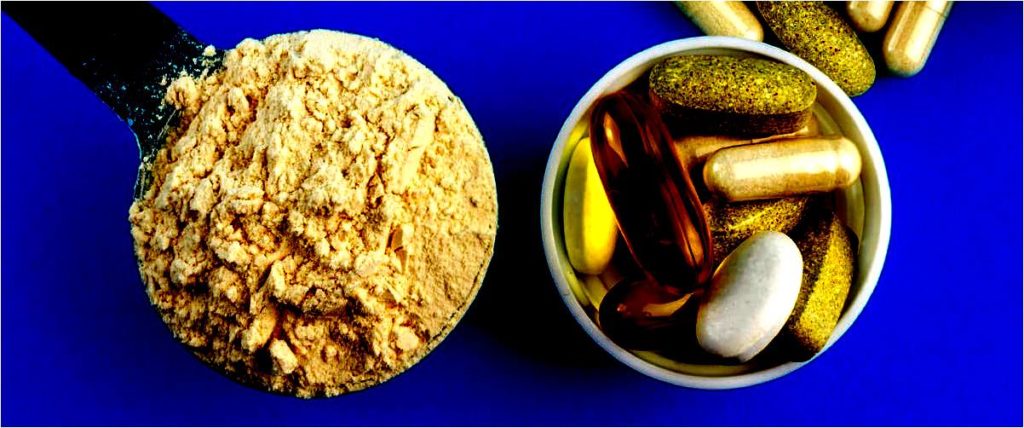Collagen is found abundantly in the deeper layer of our skin (dermis). Its function is to keep the skin plump, fresh, elastic and smooth. As we age, the production of collagen decreases, which results in the appearance of wrinkles, sagging skin, thinning skin. Some wonder if taking collagen supplements will reduce the signs of aging, and make our skin look younger. I will discuss this in the article.
Collagen supplements

In the article, Do collagen products work, and are they worth my money?, I explained how collagen structure is too big to penetrate the top layer of the skin (epidermis) and get to the lower layer of the skin (dermis) for anti-aging benefits. However, collagen peptides (hydrolysed collagen) are actually fragments of the collagen structure, and there is some evidence that due to their smaller size they are able to penetrate the top layer of the skin. Minimal research exists that could support the claim that collagen peptides actually help in regenerating collagen in the dermis, although more data is needed to confirm this claim.
Collagen supplements are mostly made up of collagen peptides (hydrolyzed collagen). Collagen is heated and converted to gelatin, and with further heat it converts to hydrolyzed collagen. Collagen supplements, since they are mostly made from hydrolyzed collagen, easily dissolve in hot or cold liquid and they can also be added to food. Collagen originates usually from various animal sources , although vegan collagen is available and made from genetically modified yeast and bacteria. Collagen supplements come in the form of powder, tablets, capsules, liquids and gummies. They are taken by mouth.
What do collagen supplements do?
Some of the claims are that collagen supplements:
- improve skin elasticity and hydration,
- stimulate hair and nail growth,
- help with reduction in joint pain and improve mobility in persons with rheumatoid and osteoarthritis,
- prevent bone loss
Is there evidence for the claims?
There is promising research that shows that oral collagen supplements in the form of hydrolyzed collagen (collagen peptides) do improve skin elasticity, increase skin hydration, and improve skin texture. However, I think that there still needs to be more research done to completely support these claims. In particular, researching variables such as the source of collagen (from which animal or if vegan), the dosage and duration, the quality of the collagen, the other ingredients in collagen supplements, that would impact efficacy of these anti-ageing claims.
In terms of reduction in pain and improvement of joint mobility in osteoarthritis, the trials show mixed results. Some studies suggest that collagen supplements may reduce pain, improve joint flexibility and improve quality of life. However, better designed clinical trials are needed, in terms of type of collagen, optimal dosage and duration requirements, that produce these claim results.
Important to note
- In the US, supplements like collagen are regulated by the FDA as food, not as drugs, so they do not have strict regulation as drugs do. However, some of the ingredients in supplements can interfere with other medication or a medical condition that you have.
- In Canada, vitamins and supplements like collagen are regulated as a sub-set of drugs, and considered to be natural health products under the Natural Health Products Regulations. They are deemed as safe to be used over-the-counter for self care, and do not require a prescription.
- As with the introduction of any oral supplement, it is best to consult with a health care provider.
- Collagen supplements should be discouraged in pregnancy and breastfeeding, due to limited evidence available.
Are they worth your money?
I think it is a personal preference. There is quite a bit of emerging evidence, especially when it comes to the skin’s appearance and quality. However, since there aren’t a lot of studies with large sample groups, with a controlled group, and over a long period of time, there cannot be a guarantee that it is the collagen supplements that are causing the skin improvement and not some other factor (such as more water, better diet/lifestyle, other skin products applied to the skin, etc). Also, not all supplements are created equal in terms of quality, ingredients; and so it would be difficult to generalize all collagen supplement claims.
So see if collagen supplements work for you. If you feel they do, then continue using them. However, if you do not see any difference, then maybe try other alternatives, such as retinoids products which has a lot of supporting data that it does increase collagen production in the skin. See separate articles on my SKiN&CO’s blog about retinoids.
References
Asserin, J., Lati, E., Shioya, T., & Prawitt, J. (2015). The effect of oral collagen peptide supplementation on skin moisture and the dermal collagen network: evidence from an ex vivo model and randomized, placebo‐controlled clinical trials. Journal of Cosmetic Dermatology, 14(4), 291–301.
Borumand, M., & Sibilla, S. (2014). Daily consumption of the collagen supplement Pure Gold Collagen® reduces visible signs of aging. Clinical Interventions in Aging, 9, 1747–1758.
Ito, N., Seki, S., & Ueda, F. (2018). Effects of Composite Supplement Containing Collagen Peptide and Ornithine on Skin Conditions and Plasma IGF-1 Levels-A Randomized, Double-Blind, Placebo-Controlled Trial. Marine Drugs, 16(12), 482–494.
Martini, N. (2019). Collagen supplements. Journal of Primary Health Care, 11(4), 385–386.
Matsuda, N. (Rakun. G. U., Koyama, Y., Hosaka, Y., Ueda, H., Watanabe, T., Araya, T., Irie, S., & Takehana, K. (2006). Effects of ingestion of collagen peptide on collagen fibrils and glycosaminoglycans in the dermis. Journal of Nutritional Science and Vitaminology, 52(3), 211–215.
Comments
Please feel free to comment below in any way you think you can contribute to this community – to share your experience with collagen supplements, any products/ingredients that you have found that work well for your skin, …
